- The best CBD products for nerve pain include topicals like creams. Oils and gummies may also help with pain relief.
- Research into CBD effects on neuropathy and nerve pain is limited and ongoing.
- Our top picks include Receptra CBD Serious Relief + Arnica Cream and Cornbread Hemp Full-Spectrum CBD Gummies.
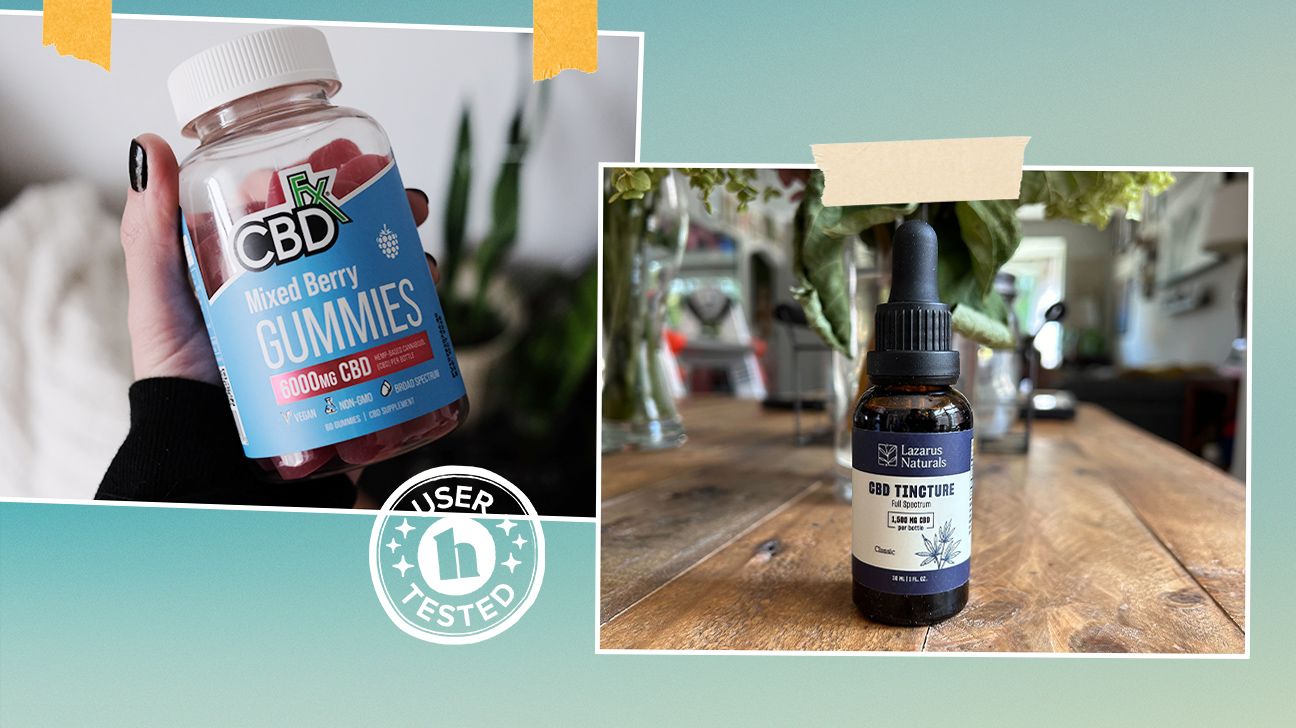
Cannabidiol (CBD) holds promise as a treatment for many health concerns, including inflammation.
For all the known benefits CBD offers, it’s unclear how well it can relieve nerve pain. Few studies have looked at CBD and nerve pain specifically. With neuropathy, CBD research is even more limited.
Still, because CBD may have the potential to help with pain, there’s a chance it may work for nerve pain.
Neuropathy vs. nerve pain
Neuropathy, or nerve dysfunction, doesn’t always result in nerve pain, also called neuropathic pain, but it certainly can. It may cause burning, stinging, and shooting pain throughout the body or particular areas, such as arms and hands.
It’s usually chronic (long-term) and may get progressively worse. Certain conditions, such as diabetes, may increase your risk of neuropathy, which could lead to neuropathic pain.
CBD glossary
- Cannabis: Also commonly referred to as “hemp” or “marijuana,” cannabis is a plant that contains dozens of different compounds called cannabinoids.
- Cannabinoids: They’re naturally occurring plant compounds that have many benefits. The most popular cannabinoids are cannabidiol (CBD) and tetrahydrocannabinol (THC).
- Full-spectrum CBD: It contains all of a plant’s cannabinoids, including THC.
- Broad-spectrum CBD: It contains most cannabinoids but often not THC.
- CBD isolate: It’s a highly purified cannabinoid extract that contains just CBD.
- THC: This is the most well-known cannabinoid. It’s responsible for the psychoactive effects of cannabis.
CBD lotions, creams, and salves may help reduce aches and pains. It’s unclear how well CBD crosses the skin barrier, but early test results are promising.
| Product | Type of CBD | Price | Form of CBD |
|---|---|---|---|
Lazarus Naturals Tincture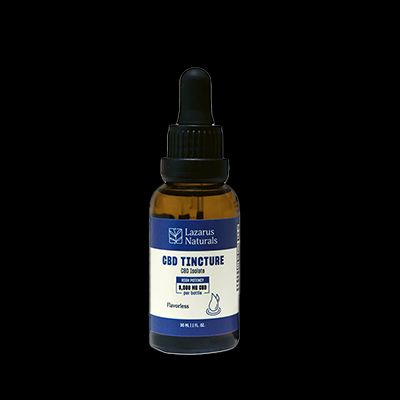 | full-spectrum | from $39.99 | oil |
Medterra Oil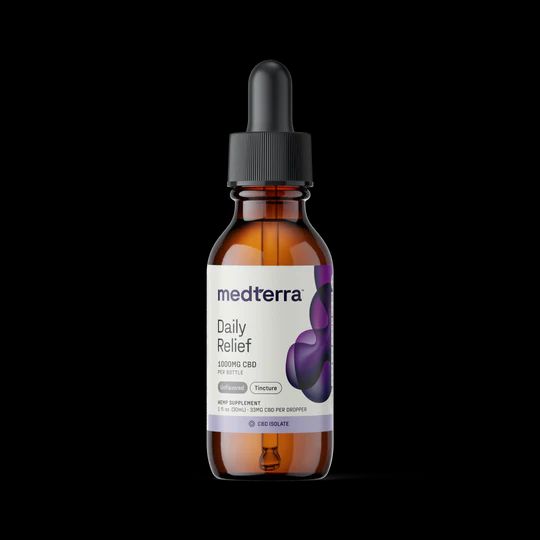 | broad-spectrum | from $64.99 | oil |
Receptra CBD Cream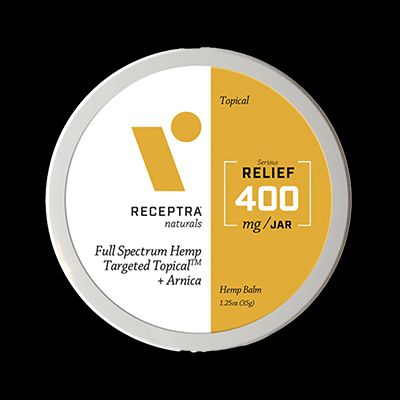 | full-spectrum | $81 | cream |
Cornbread Hemp Gummies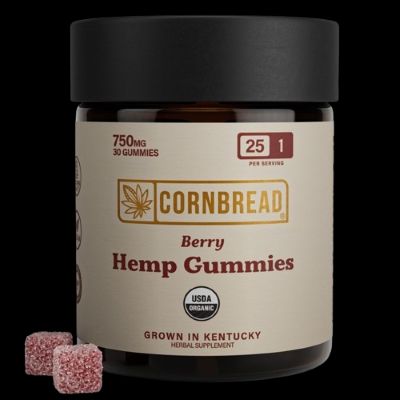 | full-spectrum | from $49.99 | gummy |
CBDfx Gummies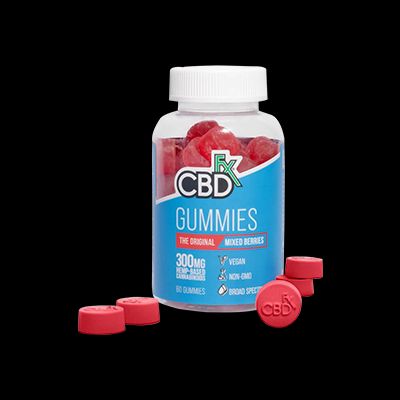 | broad-spectrum | from $54.99 | gummy |
Sunmed Topical CBD Cream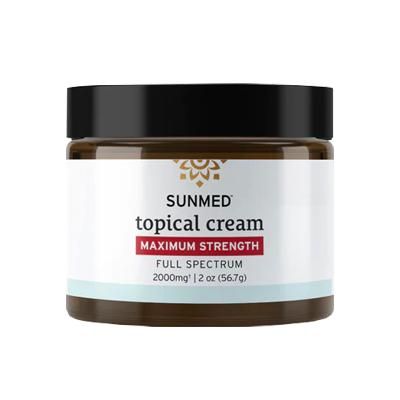 | full-spectrum | from $95 | cream |
We selected these CBD products based on criteria we think are good indicators of safety, quality, and transparency.
As part of our vetting process, we consider:
- the product’s composition, ingredients, and overall quality
- any third-party certifications
- the company’s reputation and business practices
- any lab test results
- marketing claims
To narrow our list further for nerve pain, we searched for CBD products that can be applied topically, directly where you’re experiencing pain. We also looked for creams and balms with added pain-relieving ingredients like arnica.
Our Medical Standards and Insights team has carefully researched and vetted over 11,000 products and services. We fact-check health claims, evaluate ingredients, and look into each brand’s reputation before sharing products and services on Healthline.
To choose the brands on this page, we considered all the CBD brands that passed our vetting process. Then, we personally tested some of them to narrow down our list even further. Read more about how we test CBD products.
CBD is one of the cannabinoid compounds found in the cannabis or hemp plant. These compounds interact with our endocannabinoid system. This interaction leads to many of the positive benefits associated with all types of cannabinoids, from boosting calmness to pain management.
Several studies have looked at the effect of CBD and other cannabinoids on pain. The results are mixed.
Additionally, many of the studies involving cannabinoids and pain have used a mixture of CBD and THC rather than CBD alone. Some other cannabinoids in studies have also included dronabinol, a synthetic form of THC.
A
A small
After 4 weeks, researchers found a statistical difference in pain reduction and uncomfortable sensations in the CBD group compared with the placebo group.
Ultimately, the research is still limited on CBD for neuropathy. More studies are needed before experts can conclude CBD is an effective treatment for nerve-related pain.
With CBD, side effects are possible. These can
- fatigue
- diarrhea
- changes in appetite
- changes in weight
Since CBD can interact with some medications, it’s important to talk with a doctor before trying CBD.
The CBD world is filled with a lot of claims and terms that may be a bit confusing when you’re first shopping for CBD. This list of basics can help you make an informed decision.
Potency
Doses in CBD products vary widely, and the true amount of CBD in each serving may be hidden on the back of a label. Don’t confuse the number of doses per bottle with the size of individual doses. The smallest amount of CBD per serving is typically 5 mg.
Start with a smaller dose and build to higher doses as you feel comfortable with the product.
Quality
The Food and Drug Administration (FDA) does not approve CBD products, so no agency verifies these products and companies’ claims. Therefore, it’s important to look for third-party testing and verification.
Reputable CBD companies promote their testing by clearly providing a certificate of analysis (COA) either on their website or by email. These results will confirm the product’s claims and also list any other findings, such as impurities or unnecessary ingredients. If a product or company does not provide a COA, be wary.
Ingredients
You may want to scan labels for additives like artificial flavorings, preservatives, and colors. Gummies and flavored CBD products may contain these, but these additives may be unnecessary outside of flavoring.
It’s also useful to read the ingredients label since certain non-CBD ingredients and methods for having CBD may also be useful for pain management.
How you take your CBD product will depend on the type you buy.
Gummies and capsules often administer highly accurate CBD amounts in a single dose. Topical products, on the other hand, can be less precise.
Figuring the right dose will take time. Most manufacturers suggest that beginners start with a small dose and increase over time. This way, you can feel how the product works with your body and affects your symptoms. However, there’s no official recommended dose for any CBD product.
You may also choose to dose as needed instead of continuously. Topicals, salves, and oils may be a good option, as they can be used when the nerve pain is particularly sensitive. Conversely, oils may be a good option for regular dosing, but you could build a tolerance.
If you’re new to CBD, it’s important to understand the many types of CBD products, what they may do, and how they may benefit you. If you’re already taking medications, it’s a good idea to talk with your healthcare professional, doctor, or pharmacist before you begin taking CBD orally.
Some medications may interact negatively with the hemp-derived product, which could cause unwanted side effects or make certain medications ineffective.
CBD oil is relatively new as a treatment for many conditions. Research is limited. But the research that does exist shows promise both for specific health concerns, like pain, and overall health.
Healthline has sole editorial control over this article. Potential uses for the products listed here are not health claims made by the manufacturers. The information in this article is intended to be general in nature. It’s not intended to be a substitute for medical advice from a healthcare professional. Healthline encourages you to make any treatment decisions with your healthcare professional.
Is CBD legal? The 2018 Farm Bill removed hemp from the legal definition of marijuana in the Controlled Substances Act. This made some hemp-derived CBD products with less than 0.3% THC legal at the federal level. However, CBD products containing more than 0.3% THC still fall under the legal definition of marijuana, making them illegal at the federal level. Some states have legalized CBD, so be sure to check state laws, especially when traveling. Also, keep in mind that the FDA has not approved nonprescription CBD products, and some products may be inaccurately labeled.




